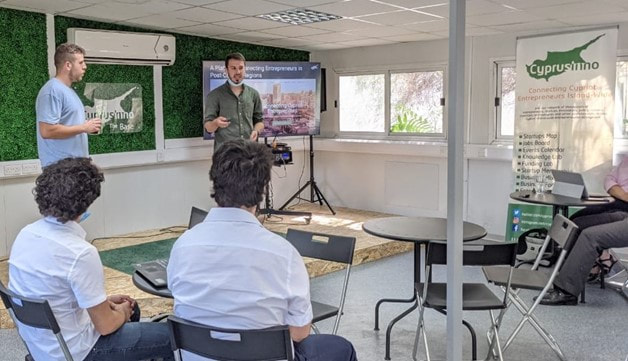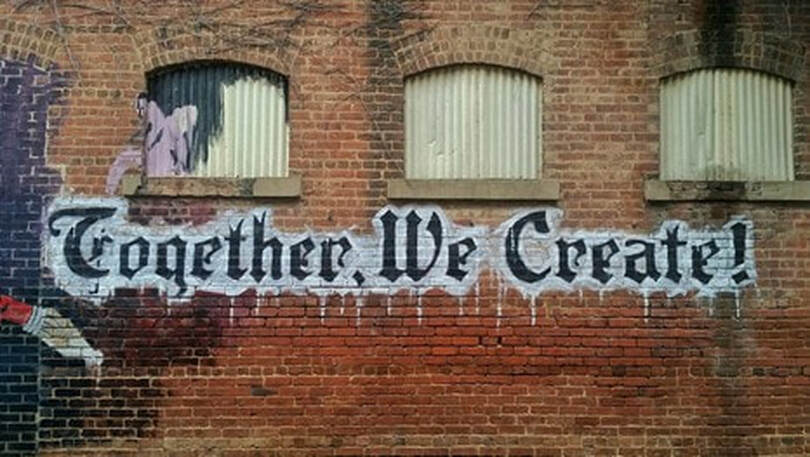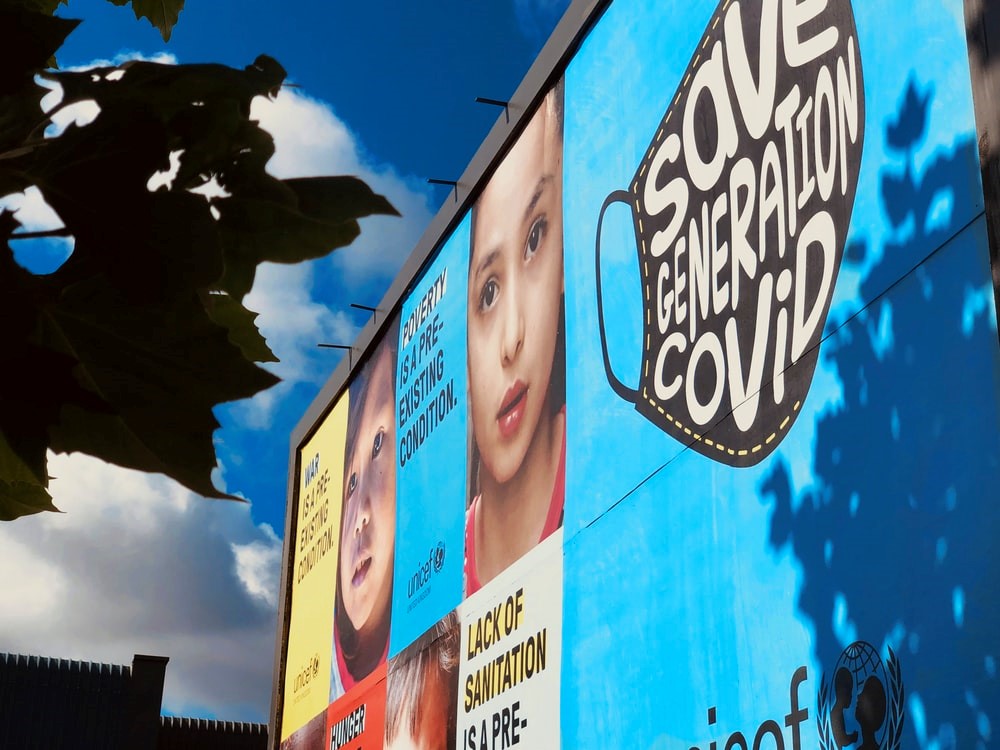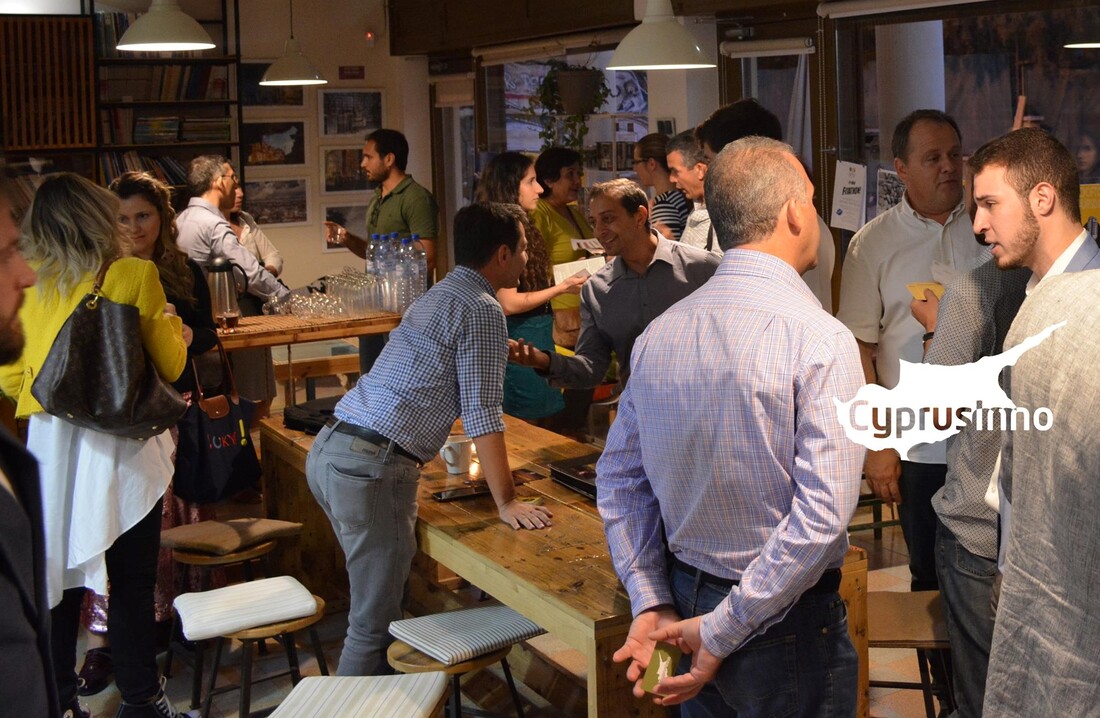A day on the life of CyprusInno In a historic summit in 2015, seventeen Sustainable Development Goals (SDGs) were adopted by all UN member states. Starting with No Poverty and Zero Hunger the SDGs are a comprehensive set of Targets covering health and education, gender equality and income inequality, climate action and much more. The SDGs heralded a significant change in the perceived roles and responsibilities of government.
0 Comments
An Update of Collaborative Ideation Imaginary scenario: you have been invited to a meeting to explore new approaches to a wicked problem. Loudmouth Number 1 describes his solution. Loudmouth Number 2 vehemently disagrees. A heated argument ensues. Some people take sides. Others remain silent. There are bruised egos. You are not the only one who feels frustrated. All that time just one single idea has been considered.
Have you ever experienced such a meeting? Have you ever wondered why brainstorming came to be? Read More... The Learning Machines I am referring to are not the Artificially Intelligent products of humans, but the humans themselves.
More learning, learning more The acceleration of the pace of change of the last fifty years and our feeling that change will be even faster in the next fifty years breeds a new type of human. People will spend a smaller part of their working lives delivering value and a larger part learning and innovating. In their jobs they will generate more value in less time because they will be delivering new or improved products and services with new and improved tools and processes. In parallel they will be learning and innovating. The trend is a long-term one starting from the early days of universal education and the continuous rise of years in education before beginning to work. But learning is not just about taking courses at schools. It is also about developing useful skills on and off the job. Formal education will be supplemented by lifelong learning, with more frequent and shorter course often taken remotely. The working day will evolve from 95/5 to 60/40 : if in 2000 people spent 95% of their time at work actually working and 5% learning or innovating, the proportions will shift radically. By 2050, about 60 % of time at work will be spent delivering value to others and 40% learning or innovating. My figures are surely imprecise but the trend is not. In fact it is already happening. The impact of Covid 19 on work and the economy is at least as dramatic as its impact on personal and public health. The pandemic has greatly accelerated innovations in the ways people work with enormous benefits and some sinister effects too. This should herald a new era of widespread social innovation.
You do not need a degree in economics to understand that if the pandemic has stopped you from making a living you can either survive on your savings (if you have any) or borrow against the future (if you can) or rely on help from others. Family and friends, communities and governments, are all playing roles in providing relief. People are not equally affected by the pandemic of course. Creativity and a capacity to change are always good allies but objective circumstances vary tremendously making change much harder for some. If the pandemic has boosted your business, you use your creative faculties to make the most of it and scale up. Good for you. If the pandemic has threatened your work, you use your adaptive acumen to figure out how to keep business going. This might be quite challenging. If the pandemic has devastated your work you use your resourcefulness to transform your work or you change jobs. It can be a tough struggle. In the early nineties I worked for Zeneca, a pharmaceuticals and plant protection company. At the time it took 10-12 years for a drug or vaccine to go from lab to market. I recall heated conversations on how to shorten this time when we could.
Until yesterday, it still took 10-12 years to get a vaccine to market. Until yesterday that is, when an entirely new type of COVID-19 vaccine was registered in the UK less than 10 ½ months after the genetic code of the coronavirus was discovered. About 40-50 COVID vaccines are on trial. Two have been registered for use in Russia and at least two from China are in widespread use, but these have not completed the stage 3 large-scale trials normally required for registration. At this point in time, the western scientific community knows more about the vaccines which have completed the large-scale trials - from BioNTech/PFIZER, MODERNA and AstraZeneca. It has been said that technology moves at 1,000 kph, private comanies at 100 kph and public administrations at 10 kph.
The myth that innovation is only for the private sector persists in many people’s minds. They forget who put man on the moon, invented the internet, designed some of the world’s finest health systems and who are still funding some of the world’s most ground-breaking research. Transformation in the way governments work does not have to be slow, but here are some reasons why it may be so: 1. Archaic dogma. Public administrations were created to give a sense of continuity and they have grown as the role of the state has grown. In the minds of their creators, they were not supposed to change even as governments may change. This myth is still strong in many people’s minds. 2. Archaic legal frameworks. Sometimes the establishment and existence of public bodies are embedded in national constitutions which are legally horrendously difficult to modify. 3. Archaic structures. They are often bureaucracies run by silos within silos, which was fine, until the last century. Aspirations, Blessings and Curses of Working Remotely
One of the most significant ways the COVID pandemic impacted work has been to get much more of it done from home. Subscriptions to extra bandwidth and virtual meeting platforms skyrocketed. People’s imaginations and their capacity to make new things happen and change their work habits accelerated overnight. Working from home impacts organizations and lives in many different ways, sometimes very profoundly. This article seeks to explore some of the many dimensions of working remotely (whether this is from home or not). History. Many organizations have been working remotely for years. For over a century garment-making, jewelry production and professional writing were done from home or from home-based ateliers. So was much call center work in more recent years. Even ten years ago about 40% of IBM’s nearly 400,000 people were “telecommuters”. From its inception GitLab, an international software company, had no offices and now it has 1300+ employees from over 70 countries (see a “how-to” of remote collaboration here). This year the tech giants – Apple, Facebook, Amazon, Google, Microsoft – all announced big and permanent changes to accommodate more work from home. Many others are doing likewise. This is not only COVID-related because there are huge potential increases in efficiency to be exploited. Possibilities. Not all work can be done remotely today. Imagine you are implementing a transformation program in your organization. You have it all spelt out with the fashionable jargon of our times. A new vision for a new business model which came from heaps of Out-of-the-Box design thinking. With entirely customer-centric systems using state-of-the-art digital technology (and of course chatbots, actionable analytics, big data, internet of things). A lean and agile operation with plenty of scrum will implement this model which will empower everybody to think smarter and act faster. You might even celebrate a few failures. Oh and (how could I forget?) the truckloads of artificial intelligence you poured in to make it happen.
Then humans move in to spoil it all. Bastards! Really now? If you really thought the innovation roadmap you showcased on paper (or on powerpoint slides) would move everyone to action, then your own intelligence must be artificial. Cranky old fogies, arrogant pricks, short-sighted accountants, unimaginative bureaucrats, scheming silo sheikhs and comfortable chieftains are the usual suspects. But the most dangerous foes are in fact the most unlikely foes, good people. Technology Managers. They are probably good in managing yesterday’s technology and have good knowledge and tight control over today’s systems in operation. They are always ready to service new demands, if only users would express their wishes more clearly. But they hate the new generation of geeks and nerds. Are Parkinson’s Law and the Peter Principle relevant to innovation?Parkinson’s Law and Change
10 people write 10 reports in 10 hours. If you hire 10 more people how many reports will all 20 people write in the same time? 20, right? Wrong! According to Parkinson’s Law it’s still 10. Published in 1942, the theory states that “work expands to fill the time available to complete it”. The reasoning is that first, managers crave power and more people to order about and, second, more people create more work for each other. Parkinson’s Law has often been used to victimize the civil service, but it is valid for all organizations devoid of good leadership and permeated by an unimaginative work ethic. It is more valid for report-writers than it is for widget makers or salespeople, whose output is easier to measure. Innovation is anathema to rigid outfits because it involves redesigning work. When it becomes possible through re-engineering (1990s) so 5 people and a machine can generate 100 reports, or through digitalization (these days) so 5 people and a cloud can let users generate any report they might need, the Parkinson crowds get angry. Their power structures and jobs are threatened and they mobilize to deny or resist the new developments. This is why “lean” and “agile” have become buzzwords today. The Peter Principle and Innovation Now imagine you are an invisible spirit looking around an organization. How many incompetent managers do you see? PEACE through ENTREPRENEURSHIP - How Businesses can be a Force for Unity.
During the Cold War, Germany’s Bavarian Forest National Park and the Czech Republic’s Sumava National Park were separated by electric fences, barbed wires, watchtowers and heavily-armed guards. In 1989 these barriers were removed, so protected animals such as red deer could roam safely and freely in the entire territory. Despite the change, herds of deer on either side of the border still remained hesitant to cross the Cold War line. Czech and German zoologists monitored the deer migration behavior with GPS satellite collars. Even after a generation, where no living deer would have encountered the barrier in their lives, Cold War behavior persisted among these otherwise thriving herds. * For those not familiar with Cyprus politics, the country is politically divided, movement is restricted and there are two different authorities and sets of laws. A “Green Line” with Turkish, Cypriot and UN troops’ presence, constitutes a physical barrier between the two sides. Negotiations for unification and peace have not to date succeeded. The people of Cyprus, who are mainly of Greek or Turkish culture, live mostly apart. Most real contact between the two sides happens through NGOs, political and peace activists advocating re-unification. Efforts to initiate meaningful business relationships have floundered on laws and political positions jealously guarded by each side. Enter CyprusInno, an intercommunal organization founded by Burak Doluay and Steven Stavrou, a Turkish-Cypriot and a Greek-Cypriot, committed to promoting innovation and entrepreneurship throughout the island. CyprusInno and the British High Commission, with the help of data analyst Aysem Zorlu, conducted an island-wide survey published in March 2020 on the entrepreneurship ecosystem in Cyprus**. |
LATEST POSTS
Archives
July 2021
|










